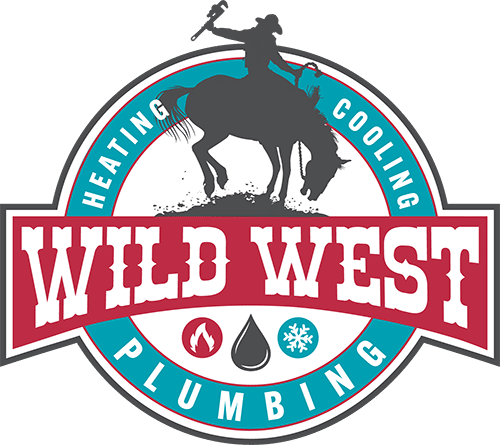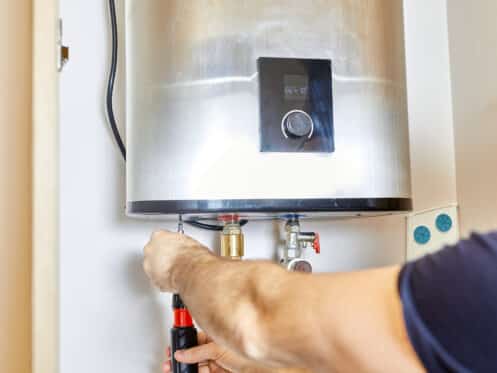Water heaters are crucial appliances in residential homes. They provide hot water for cooking, showers, cleaning, and more. With various designs and models available, you need to understand the specific benefits and potential drawbacks of each. This knowledge is essential to making an informed decision. First, you should learn the general pros and cons of these appliances before finding out detailed information about specific types, including tank, tankless, heat pump, and solar models.
The Pros of Water Heaters
Water heaters are in most homes for good reasons. The first is convenient access to hot water. Simply turning a tap gives you access to hot water for all your daily needs. Modern living relies on this indispensable comfort.
Energy efficiency is another benefit of water heaters. Modern units, especially heat pump and tankless models, are designed to be as energy efficient as possible. Advanced technologies minimize energy consumption. That reduces both your utility bills and carbon footprint over time.
Water heaters are available in many different sizes and types, from traditional tank models to the innovation of tankless systems. The variety means that you can find a solution to suit your needs, whatever they might be. Possibilities exist for any budget, energy preference, or household size.
Having an efficient water heater installed in your home can increase the property value. Buyers are looking for homes with new appliances installed and many years of service left. Any upgrades that involve energy efficiency are also appealing because of lower utility bills. Buying a home is a major expense, and prospective homeowners want a residence that won’t cost them more money in the near future.
Some models are investments that pay off over time through long-term savings. High-efficiency tankless units and solar water heaters might have higher initial costs, but they yield serious energy savings. They also frequently have lower maintenance needs.
The Cons of Water Heaters
Tank water heaters are usually standing by to provide you with hot water every time you need it, making them easy to forget about most of the time. However, they do have some potential downsides for all the conveniences they bring into so many homes. Initial costs are a concern with many models. High-caliber water heaters, particularly advanced solar or tankless models, might be expensive to buy and have installed. If you’re on a budget, the initial investment can be a hurdle. Those same systems might also require specialized installation that increases labor costs past the point of feasibility in your home.
All water heaters have ongoing costs associated with them. Regular maintenance is crucial to ensuring longevity and optimal performance. For example, tankless systems need descaling if your area has hard water, and tank water heaters need routine flushing to avoid sediment buildup. Energy consumption can also be an ongoing cost in some models. Conventional tank water heaters have to keep water hot continuously at the desired temperature, and this has to happen even when you’re not using it. Standby heat loss can boost your energy bills more than newer systems with more efficiency.
Storage tank water heaters always have capacity limitations. You might even run out of hot water when your home has high-use periods. Larger households can find this inconvenient.
Types of Water Heaters: Pros and Cons
Water heaters can be traditional tank models, tankless units, solar systems, or heat pump hybrid technology. Each has unique benefits and drawbacks you should know as you compare options.
Storage Tank Water Heaters
Storage tank water heaters are the most common and traditional appliance. A tank stores a specific amount of hot water. The advantages of storage tank water heaters start with affordable upfront costs. These units are usually cheaper than other kinds of water heaters. Easy installation also keeps labor costs down, and the units are widely available due to their simplicity and popularity. They’re also reliable sources of consistent hot water, provided they get sized properly for the household in question.
Having said that, standby heat loss from constant heating can reduce energy efficiency. Limited capacity can be an issue if multiple fixtures are in use simultaneously. Their lifespan might be shorter than other kinds, as they usually last eight to 12 years.
Tankless Water Heaters
Tankless water heaters are also known as on-demand systems. They only heat water when it’s needed. Nothing is stored in a tank. This configuration makes them energy-efficient technology without standby heat loss. Their compact design saves space because there are no bulky tanks, and the unlimited hot water is ideal for high-usage households. Tankless water heaters are also noted for their longevity. With proper maintenance, they can last two decades.
They are usually more expensive to buy and have installed. Flow-rate limitations might struggle to provide adequate hot water to multiple points in the home at the same time. If you live in a hard-water area, descaling is a common maintenance requirement.
Solar Water Heaters
This eco-friendly choice uses the sun’s energy to heat water, reducing reliance on fossil fuels and significantly cutting utility costs if you live in a sunny climate. Solar installations also benefit from tax rebates and credits in many jurisdictions.
They are weather-dependent. Cold or cloudy days can drop system performance. A backup system might be necessary to maintain a continuous hot water supply. High upfront costs can be a budgetary hurdle. Solar systems also need sufficient ground or roof space for the panels.
Heat Pump Water Heaters (Hybrid)
These energy-efficient systems don’t generate heat for the water. Instead, they utilize electricity to move heat from the ground or air to heat the water. Since they use less electricity than conventional systems, operating costs are lower over time. This also makes them eco-friendly options for anyone looking to reduce their carbon footprint.
The higher initial costs can offset the ongoing energy efficiency. These are often more costly than conventional electric units. The water is also slower to heat when compared to more traditional systems. Heat pump water heaters might not be effective choices for colder climates because of temperature sensitivities.
A Necessary Comfort
Water heaters are crucial to modern living. Access to hot water seems like a matter of convenience and comfort, but many jurisdictions require this feature for a residence even to be legally habitable. Each kind has its own pros and cons, covering many different aspects. There’s at least one good water heater for every household’s needs, and in many cases, there are multiple effective options. Consider the pros and cons, along with your needs and budget, to find the best option for your home.
This investment is worth proper maintenance so your family can enjoy years of reliable comfort and services. Industry professionals can help you find the right model for your home and keep it functioning optimally. Wild West Plumbing, Heating & Cooling serves residents in Kalispell and the Flathead Valley region of Montana. We provide plumbing, HVAC, and indoor air quality services. Contact Wild West Plumbing, Heating & Cooling for water heater installation, service, replacements, and repairs.


